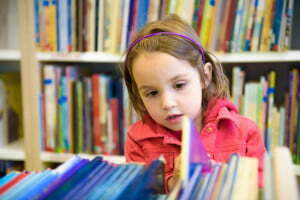If you are getting ready to send your kindergartner off to the first day of school, you may be wondering what they need to take with them. We have some suggestions for physical things that you might want to give them as well as some less tangible (but equally important) things.
First, the backpack. There are some important things to think about:
- Backpacks should not weigh more than 10-20% of a child’s total body weight according to experts.
- The pack should not dangle more than 4 inches below the child’s waist. Make sure that there are straps that will let you adjust the backpack.
- Padded straps will be more comfortable.
- Make sure that your child can unzip all of the zippers and open all the fasteners by themselves.
- The pack should be big enough to carry a 12-inch folder since many schools send homework and important information home in a folder.
- It can be really exciting for kids to pick out their first backpack for school. You can make this a special shopping trip that can be especially helpful if kids are feeling nervous about starting school.
Next, here are some physical things to put in that backpack:
- Lunch box. This will depend on whether your child will bring lunch or pick up lunch at school. If your child will take a lunchbox, make sure that they can open the lunch box and any containers that go into the lunch box.
- Water bottle. This will help your child stay hydrated all day. When kids drink enough water, they can concentrate and learn better.
- Extra clothes. Kindergartners can still have bathroom accidents, especially when everything is new, and they can also just get messy. Include extra pairs of underwear, pants, and socks in your child’s backpack in a Ziploc bag (that can be used to send any wet or dirty clothes home).
- Emergency information. A card with emergency contact information can be laminated or put in a Ziploc bag.
- A small reminder of love. This can be particularly helpful for children who are anxious about being separated from their parents. All you need is something small like a paper heart, a friendship bracelet, or even a small rock that you gave or picked out with your child. Your child can use this to remember that you love them and that you will be back with them at the end of the day. If your child is particularly anxious about starting school, here are some more things you can do to help them manage their worries.
There are also other (less physical) essential things that you can make sure your child has on those first days of school (and beyond):
- Family support. When you tell your child that you support them and believe that they will try their best (note that this is about their effort, not how well they do), you boost their confidence and help them maintain a positive outlook. This is especially important when they are learning and doing a lot of new things.
- A good night’s sleep. Getting enough sleep helps children to be ready to pay attention, learn, and manage all of the situations they will encounter at school. Building a healthy bedtime routine can promote good sleep.
- Family involvement in school. There are lots of ways that you can get involved in your child’s schooling. Being involved in your child’s learning both at home and a school tells your child that you think school is important.
The start of school is a very exciting time. By making sure that your child has essential supplies and skills, you can help them have a smooth transition!





